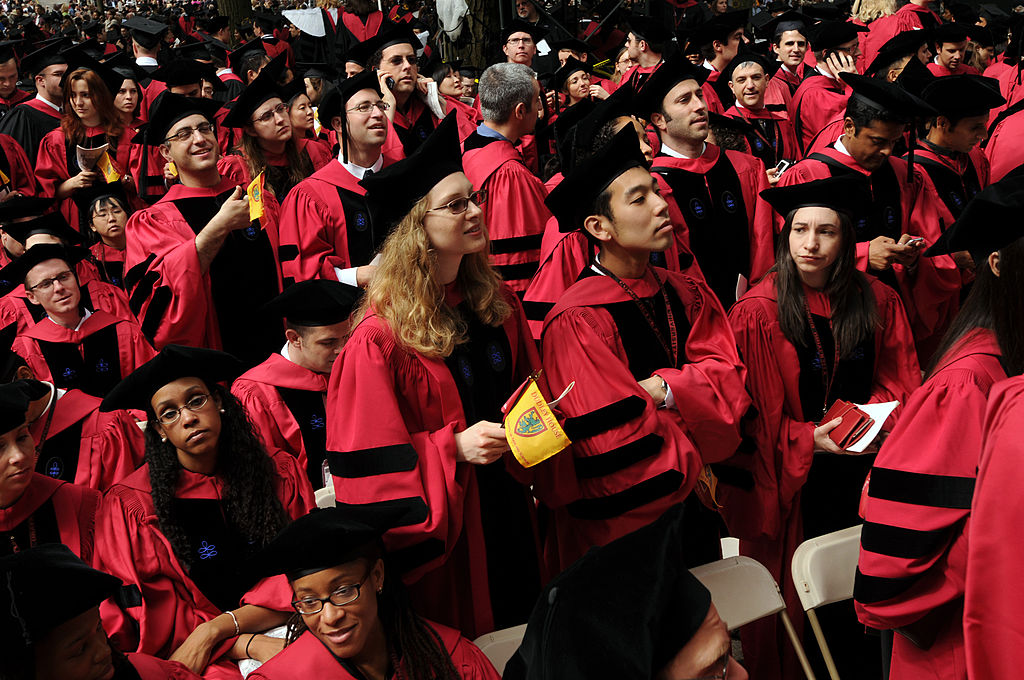According to a new report by the Foundation for Individual Rights and Expression (FIRE), Harvard University is the worst college in America for free speech. The annual report released by FIRE assessed student perceptions and behaviors of faculty, administrators, and undergraduates towards free expression. Out of 248 ranked colleges, Harvard scored 0 points, the lowest ever recorded, earning it an “abysmal” classification.
The report revealed that deplatforming attempts at schools ranked in the bottom five had an alarming 81 percent success rate. Depending on the topic, up to 72 percent of students opposed allowing a conservative speaker on campus, while up to 43 percent of students opposed allowing a liberal speaker. A significant number of students (73 percent) said that using violence to stop campus speech is never acceptable, down from 80 percent last year. At Oberlin College, a liberal hotbed, only 53 percent of students held this view.
Discussing certain topics on campus proved challenging. For instance, 49 percent of students found it difficult to discuss abortion policy, especially during a time of national dialogue on the subject. Other difficult topics included gun control, racial inequality, and transgender rights.
The study also showed that 73 out of the 248 schools ranked have “below average,” “poor,” “very poor,” or “abysmal” speech climates. Just 47 schools have at least “slightly above average” speech climates. Last year, when 203 schools were ranked, these totals were 64 and 39, respectively.
Among the worst performers were some of America’s most influential schools, including Harvard, Georgetown, Northwestern, and Dartmouth. “Each year, the climate on college campuses grows more inhospitable to free speech,” said FIRE Director of Polling and Analytics Sean Stevens. “Some of the most prestigious universities in our country have the most repressive administrations. Students should know that a college degree at certain schools may come at the expense of their free speech rights.”
The report also highlighted that six colleges were labeled as “warning schools” for having policies that prioritize other values over a commitment to freedom of speech and were thus excluded from the list. These schools are ranked relative to each other, with Hillsdale and Liberty topping the list. On a positive note, Michigan Technological University was ranked as the best school for free speech in America, alongside Auburn, the University of New Hampshire, and Oregon State University.
Despite these concerning statistics, FIRE President and CEO Greg Lukianoff expressed optimism about some university presidents taking the issue of freedom of speech and academic freedom seriously by signing on to free speech initiatives. However, he warned that they still have a long way to go towards restoring public trust. He concluded, “After all, an environment in which you can actually get in trouble for the ‘wrong’ academic opinion is not one that can be depended upon to produce reliable knowledge.”













